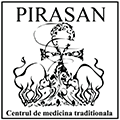Depression is a mental disease characterized by persistent or recurrent episodes of sadness and pathological melancholy. These episodes last longer than several weeks and have a negative impact upon a person’s social, professional, family and private life. The symptomatology of depression is complex. It differs as intensity and association according to the type of depression: dysthymia, major depression and bipolar depression. The manifestations of dysthymia have a chronic character and they last longer periods of time, although they are of lower intensity. They decrease a person’s intellectual and professional performance but they don’t incapacitate him. However, the manifestations of major depression incapacitate the person, disturbing his professional performance, his sleep, his libido and his recreation activities. The associated symptoms last longer than 2 weeks. The maniacal depression or the bipolar disease comprises a cycle of disposition disorders, a cycle made up of episodes of pathological sadness followed by episodes of euphoria. The changes of mood occur gradually or suddenly. p
The particular types of depression are: psychotic depression, post-partum depression and the seasonal depressive disorder. The psychotic depression develops as psychotic episodes (hallucinations, delirium etc.) in association with severe forms of depression. Post-partum depression occurs in a number of women after giving birth, making the mother unable to fulfill her parental duties. It lasts from several weeks to several months. The seasonal depressive disorder only occurs at certain times of the year, usually during the seasons with less sun light. Symptoms vanish during the warm and sunny seasons.
The main types of depression comprise such symptoms as: sadness and constant melancholy, irritability, fury, inquietude or a feeling of heart emptiness. The patient has a pessimistic, hopeless thinking. He feels helpless, incapable and he continually blames himself. He loses his appetite for life, for living and the suicide appears as the only solution to solve his problems. The daily activities are performed without any interest and hobbies and recreation activities don’t make any pleasure. There is a decreased libido; there occur sleeping disorders: insomnia or the need to sleep longer. There is fatigue; there are headaches, digestive disorders or chronic pains without an obvious cause. The patient’s movements become difficult as if every gesture would take great effort. There occur changes of weight: the patient either loses weight because of the loss of appetite or he gets fat because of an increased appetite. The patient finds it difficult to make decisions, to focus, to actualize information or to memorize new information. As far as children and teenagers are concerned, the school results get worse; they seem to be bored all the time, losing interest in most of the activities.
Maniacal episodes, specific for the bipolar disorder are characterized by: fury and irational irritability, feelings of euphoria and exaltation, insomnia, fast and incoherent talking or a raised tone of the voice, inadequate social behavior, exacerbated sexual behavior, confused and incoherent thinking, a reduced capacity of analysis, exaggerated perceptions of himself and of the surrounding world, distorted reality.
Causes
Depression is caused by biological factors (poor brain oxygenation, hepatic disorders in association with splenic and thyroid disorders, inadequate food regime etc.), psychological factors (the inner conflicts or the insatisfactions are more intense and more numerous than the personal satisfactions); social factors (an inadequate family and social environment, a overworking social environment etc.), environmental factors (pollution, lack of exposure to the solar light, exposure to radiations etc.).
Treatment
Depression has a major impact upon the human body. The biological manifestations mirror the metabolic disorders and the misbalances that occurred. If the depression occurs as a result of a chronic affection, the symptoms of the disease are amplified. There may also occur situations when the association of depression with the already existing disease gives birth to other chronic diseases.
From a psychological point of view, the depressive persons’ thinking is stuck upon an event or a series of events. Reporting the respective events to the assimilated value system, the person will appreciate them as negative. Therefore occurs the conflict between the value system and the actual events. The person relives those events in his mind, trying to find a solution, yet without success. It’s the reason why the depressive persons appear to be absent and uninvolved in the social life and captives in a universe of their own. The patient blames himself for the past events. His self esteem and his confidence in himself are affected. In the advanced stages, the suicide appears as a solution. Both the perception of the reality and the conception about life are altered.
Under this context, the patient must follow a complex treatment in order to cure depression. Acupuncture and herb products strengthen the human psychic and provide him with the necessary resources for the healing process. There will be treated the affections caused by depression or the ones that caused the depression. The dialogue between doctor and patient will also include stages of psychological conflicts settlement, the patient being guided to accept the events that occurred, without approving them morally or affective. The patient will also have to accept that the past cannot be changed. The existing conflicts will be surpassed when the patient assimilates these concepts in his thinking and his behavior.

